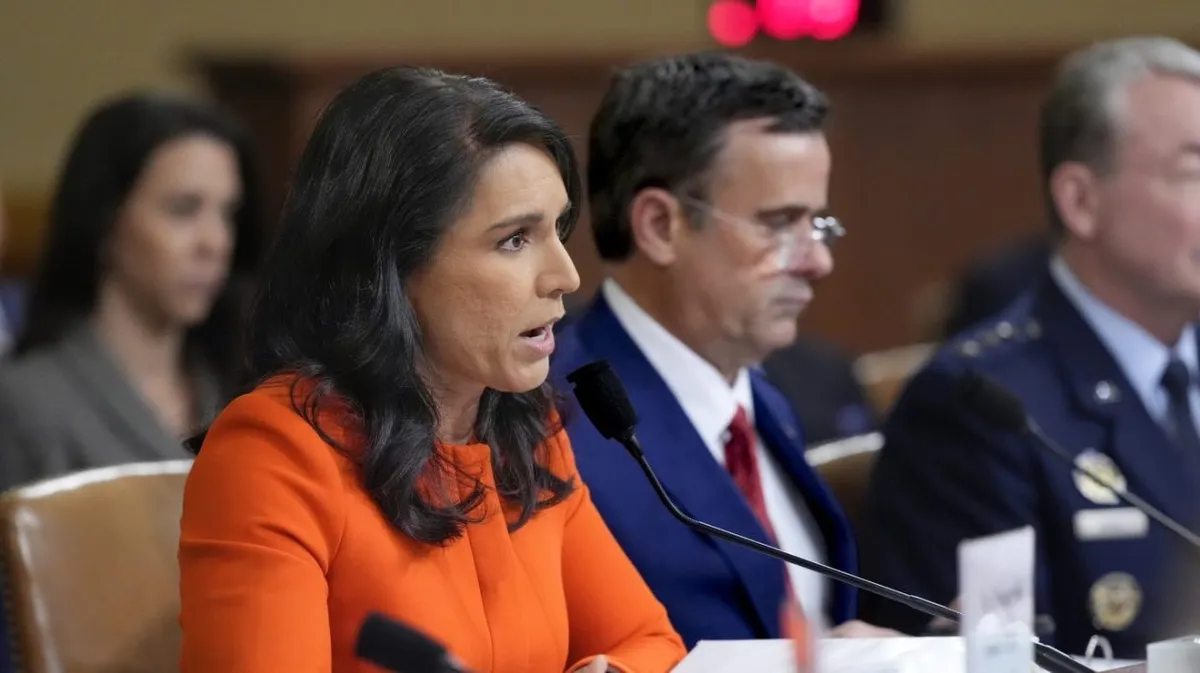
In a significant move, Republican senators are raising alarms over discussions that took place among senior officials in the Trump administration via the commercial app, Signal. They are insisting that all communications must be preserved to ensure compliance with the Federal Records Act and to determine if any classified information was potentially compromised. Senate Armed Services Committee Chairman Roger Wicker (R-Miss.) is collaborating with Sen. Jack Reed (D-R.I.), the committee's ranking member, to draft a letter directing the Trump administration to maintain all records pertaining to a Signal chat that discussed a planned military strike on Houthi rebels.
Wicker stated, “We’re working on a different letter on preservation of documents,” emphasizing the urgency of the matter. According to sources, this letter was dispatched to the Trump administration on Thursday. Furthermore, both Wicker and Reed sent a separate letter to the Pentagon’s office of inspector general, requesting a thorough assessment of the circumstances surrounding the Signal chat. This chat reportedly involved Secretary of Defense Pete Hegseth, National Security Advisor Mike Waltz, and other prominent officials.
In their correspondence, they expressed concerns that this chat might have included classified information regarding sensitive military operations in Yemen. “If true, this reporting raises questions about the use of unclassified networks to discuss sensitive and classified information,” they stated, highlighting the risk of sharing such information with individuals lacking the necessary security clearance.
The leaders of the Senate Armed Services Committee's request for the Trump administration to preserve all documents related to the Signal chat could pave the way for a more extensive congressional investigation. Wicker has mentioned plans for a “classified briefing” on the issue, although he has yet to confirm whether there will be a public hearing. This has already drawn demands from some Democrats on the committee, including Sen. Mark Kelly (D-Ariz.), who believes the Secretary of Defense should be accountable before the committee to explain the decision-making process behind using Signal.
Kelly, a decorated naval combat pilot, labeled the leakage of operational details on Signal as “one of the biggest OPSEC blunders” he has encountered throughout his 25 years of military service. The controversy hinges on whether Trump officials compromised national security or even infringed upon the Espionage Act by disclosing critical operational details of a military strike before it occurred, particularly in a group chat that included an editor from The Atlantic magazine.
Lawmakers are focusing on whether senior Trump officials adhered to federal record-keeping laws by discussing military strike operational details through a commercial app that allows for messages to be automatically deleted. This concern echoes the controversy surrounding former Secretary of State Hillary Clinton’s use of a private email server during the 2016 presidential election. A 2016 State Department audit revealed that Clinton failed to comply with the Federal Records Act, as she did not disclose emails related to State Department business prior to leaving office.
Sen. Thom Tillis (R-N.C.) emphasized the importance of compliance with the Federal Records Act, stating, “We have to. I want to hold us to a higher standard.” Tillis commended Wicker’s initiative to investigate the matter, which several Senate Republicans have condemned as a major “mistake” and “screw up.” He added, “I do agree with Sen. Wicker that we should examine it and let the facts speak for themselves.”
Sen. Dan Sullivan (R-Alaska), another member of the Senate Armed Services Committee, remarked that the national security team under Trump needs to significantly improve their practices. “Obviously, they made a mistake. They got to up their game,” he asserted, stressing that maintaining operational security, or OPSEC, is crucial.
This issue of records retention was also discussed during a recent Senate Intelligence Committee hearing, where Director of National Intelligence Tulsi Gabbard and CIA Director John Ratcliffe testified about their involvement in the Signal chat regarding the Yemen strike. Ratcliffe assured lawmakers that his agency has taken steps to preserve the records of official conversations, reflecting their commitment to following federal law.
On Thursday, a federal judge ordered the Trump administration to “promptly make best efforts” to preserve all communications over Signal related to the conversations of senior officials concerning military planning. U.S. District Court Judge James Boasberg issued this ruling in response to a lawsuit filed by American Oversight, an organization advocating for government transparency. They argued that discussions over Signal potentially violated the Federal Records Act.
Chima Chukwu, the executive director of American Oversight, stated, “The public has a right to know how decisions about war and national security are made — and accountability doesn’t disappear just because a message was set to auto-delete.” This ongoing situation highlights the critical intersection of technology, national security, and compliance with federal regulations, raising essential questions about the future of communication within government operations.